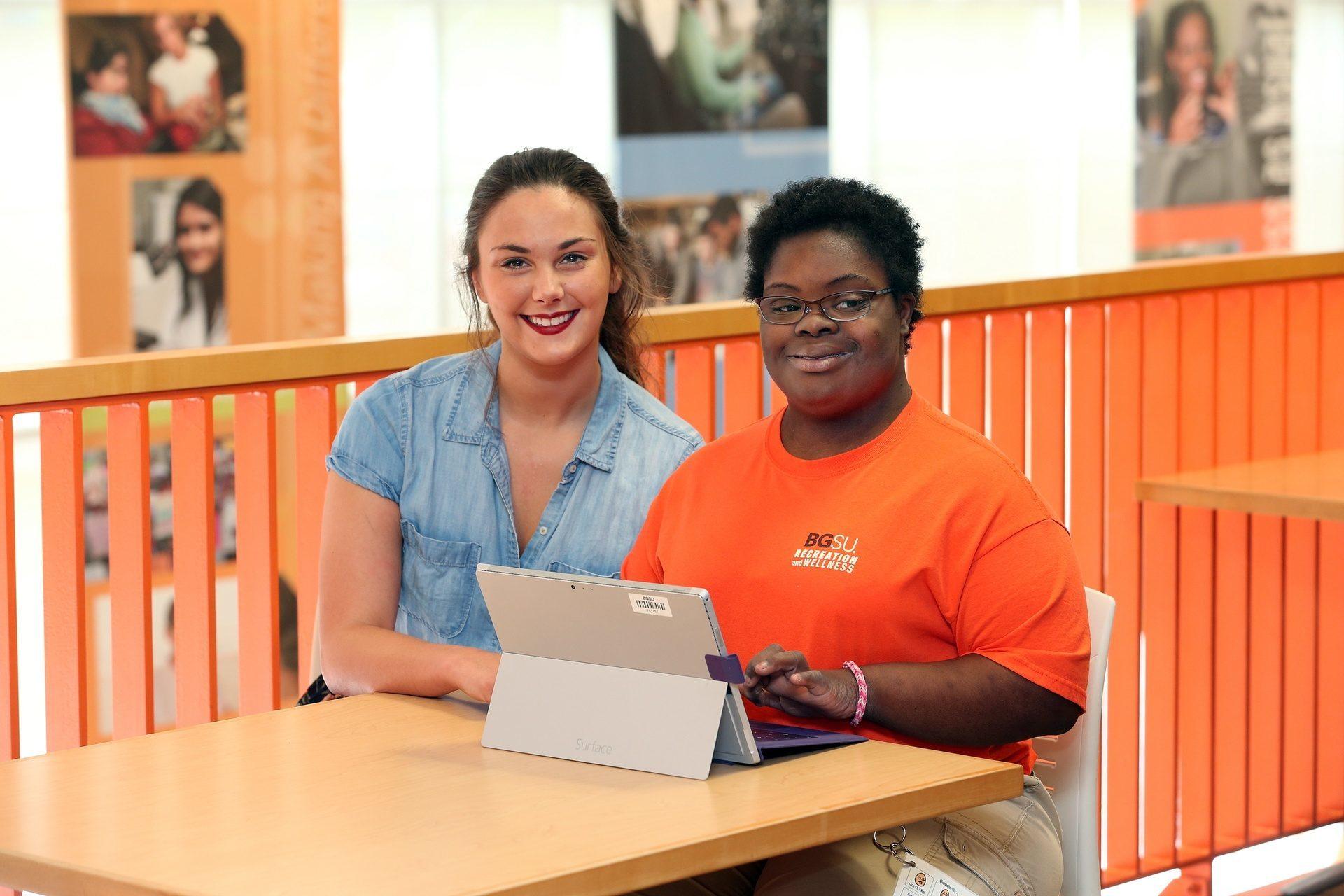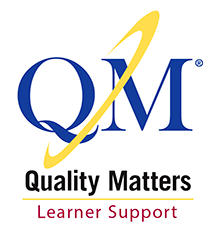
Master of Education (M.Ed.)
7-week 100% online
Special Education: Secondary Transition
The BGSU Master of Education in special education with a specialization in secondary transition equips educators, rehabilitation professionals, counselors and others with the knowledge and skills to support youth with disabilities as they transition to college, careers and adult life.
The 100% online program offers six start dates throughout the year and seven-week courses.
The innovative, 2-in-1 program allows eligible students to earn an Ohio Transition-to-Work (TTW) endorsement as well as a M.Ed.
Have questions?
Our online enrollment specialists are here for you from registration to graduation. Contact us with questions about applying, financial aid, program details, student support and more. online@bgsu.edu | 419-372-3226
Program highlights
- Flexibility. Work at your own pace, on your schedule with seven-week courses and multiple start dates throughout the year. Complete your online master’s degree in 18-24 months.
- Skill enhancement. The BGSU M.Ed. program helps you:
- Build your professional expertise.
- Put evidence-based transition knowledge into practice.
- Strengthen your teamwork and collaboration skills.
- Sharpen your critical thinking and communication skills.
- Virtual community of practice. Join this vibrant community and learn from faculty and peers across disciplines representing secondary education, counseling, career and employment services, and higher education. Discussions are lively as we share diverse experiences, knowledge and resources and grapple with contemporary challenges to providing effective transition planning and services.
Career opportunities
BGSU M.Ed. graduates are prepared to excel in transition leadership positions within K–12 schools, community agencies and institutions of higher education.
Federal legislation and state Employment First initiatives continue to emphasize the need for a qualified workforce to help youth with disabilities successfully transition to competitive integrated employment and adult life.
A secondary transition master’s degree from BGSU will assure employers that you possess the knowledge and skills to support youth with disabilities as they move into adulthood, whether you are a special educator, career-technical educator, general education teacher, school counselor, vocational rehabilitation counselor, developmental disabilities service provider, parent advocate, or Center for Independent Living (CIL) or inclusive postsecondary education (PSE) staff member.
Career paths
- School transition specialist
- Development disabilities transition specialist
- Transition rehabilitation counselor
- Job training coordinator
- College teacher
- Senior professional educator
I chose BGSU’s Secondary Transition program because it helped fellow teachers achieve their dream jobs. The professors were approachable and knowledgeable. They shared many great resources that I continue to use. This program supported my career goals through the convenience of being online. That made it possible for me to teach full time while completing my master’s program.
Jenna Lahood
Intervention specialist, Medina City Schools
I am beyond impressed with the program structure and the opportunity it provided me to continue growing as a professional. I obtained my master’s while I was a service and support administrator at the Cuyahoga County board of developmental disabilities, and it was extremely valuable for me. I have recommended this program to just about everyone who is working with transition-age youth.
Britta Hough
Regional community life engagement project manager, Ohio Department of Developmental Disabilities
Curriculum
Interdisciplinary coursework and field experiences prepare you to effectively collaborate with families and professionals to prepare young people for college, careers and community membership. Coursework emphasizes the use of evidence-based practices to improve transition practice and teaches critical leadership skills for promoting positive outcomes for youth with disabilities.
NOTE: This program does not lead to an initial teacher license.

Sample courses
- Transition from School to Adult Life
- Transition Assessment and Instructional Strategies
- Competitive Employment, College and Careers
- Partnerships in Work-based Learning
- Interagency Collaboration for Transition
- Research in Education
- Master's Capstone
Ohio TTW Endorsement
Program graduates who hold a standard Ohio intervention specialist, career-technical teaching, or professional pupil services license or certificate are recommended to the Ohio Department of Education for the Transition-to-Work (TTW) endorsement.
The TTW endorsement is a valuable credential many school districts require for their transition specialists, job training coordinators, career assessment specialists and others who coordinate or provide transition services. For school counselors, occupational therapists, social workers, school psychologists and other pupil service professionals, earning the TTW Endorsement certifies that they have the knowledge and skills to support effective transitions for the students with disabilities they serve.
 BGSU is the only university in Ohio and one of just nine in the nation to earn the Quality Matters Online Learner Support certificate for all of our seven-week online programs. The certificate recognizes that our programs provide the critical services needed for student success and that we use student feedback to continuously improve those services.
BGSU is the only university in Ohio and one of just nine in the nation to earn the Quality Matters Online Learner Support certificate for all of our seven-week online programs. The certificate recognizes that our programs provide the critical services needed for student success and that we use student feedback to continuously improve those services.
The Master of Education in special education with a specialization in secondary transition is a program in the School of Inclusive Teacher Education in the College of Education and Human Development.
Accreditation
Bowling Green State University [BGSU] is accredited by the Higher Learning Commission. BGSU has been accredited by the Higher Learning Commission since 01/01/1916. The most recent reaffirmation of accreditation was received in 2022-2023, with our next reaffirmation of accreditation scheduled for 2032-2033. Questions should be directed to the Office of Institutional Effectiveness.

